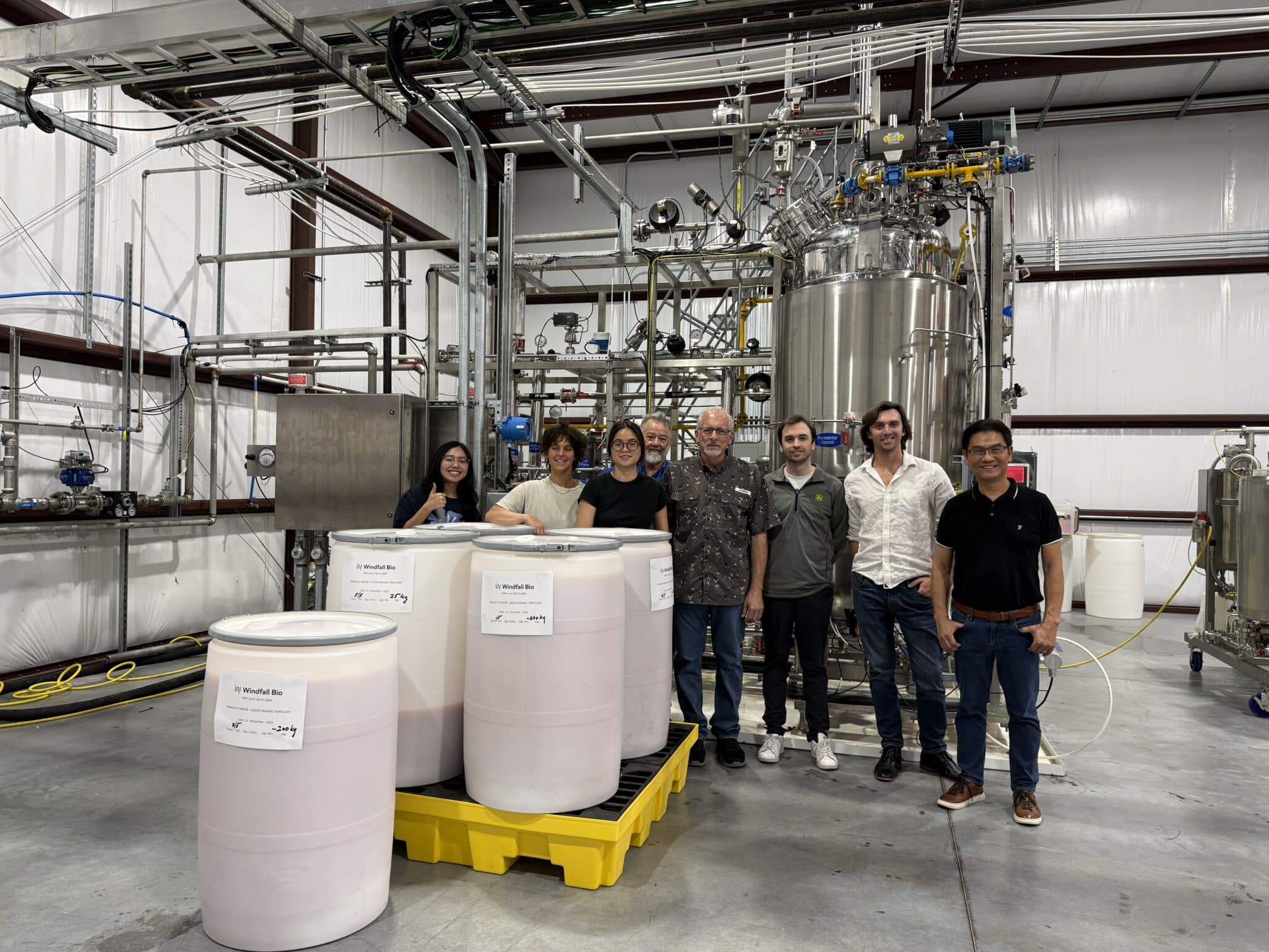Key Takeaways
- Windfall Bio has opened a commercial-scale demonstration facility in Houston showcasing its methane-to-value bioreactor platform.
- The system uses natural microbes (“mems”) to convert waste methane into biomass, which is processed into the company’s branded organic fertilizer, FOUNDATION.
- The 5,000-square-foot plant supports engineering demonstrations, continuous operations monitoring, and real-world performance assessment.
- The project represents a $5 million investment and has already created 10 full-time engineering and manufacturing roles.
- Windfall Bio plans broader commercial deployments across dairy, landfill, wastewater, and oil and gas sectors.
Windfall Bio Launches Commercial-Scale Demo Facility in Houston
Windfall Bio has announced the opening of its first commercial-scale demonstration plant in Houston, Texas, marking a significant step in the company’s methane-to-value technology development. The facility highlights Windfall Bio’s modular bioreactor platform, which uses naturally occurring microbes—referred to as mems—to convert waste and dilute methane streams into valuable organic fertilizer.
The approximately 5,000-square-foot site allows partners and visitors to observe the system in a live operational environment and assess its technical and economic feasibility.
Windfall Bio Showcases Modular Bioreactor System and Methane Conversion Process
Windfall Bio’s platform is designed to handle multiple methane feedstocks, including oil and gas flares, landfill gas, coal bed methane, and biogas. Inside the reactor, mems consume methane and convert it into microbial biomass. This biomass is then processed into FOUNDATION, Windfall’s commercial organic fertilizer.
The facility also integrates proprietary software that enables remote performance monitoring, AI-driven insights, and real-time operational feedback.
“There’s no better way to understand the impact of a transformative technology than to see it in action,” said Josh Silverman, co-founder and CEO of Windfall Bio. “With our commercial-scale demonstration plant now fully operational, we’re inviting partners and customers to experience first-hand how Windfall’s platform turns waste methane into value — reliably, cost-effectively, and at scale.”
Invests in Houston’s Growing Biotech and Climate-Tech Hub
The Houston demo plant represents a $5 million investment aimed at expanding Windfall Bio’s operational capabilities and supporting workforce development. The facility has created 10 new full-time roles in engineering and manufacturing, with further job growth expected as production increases.
The project strengthens Houston’s position as an emerging biotech hub and aligns with regional efforts to advance climate technologies that address methane emissions while generating new economic opportunities.
Windfall Bio Plans Broader Commercial Deployments Across Multiple Sectors
Beyond the Houston demonstration site, Windfall Bio is advancing commercial projects in several industries where methane waste is prevalent. These include:
- Dairy farms
- Landfill operations
- Wastewater treatment facilities
- Oil and gas operations
The company’s modular architecture is designed to scale across these applications, offering operators a pathway to capture value from methane streams while reducing emissions.



